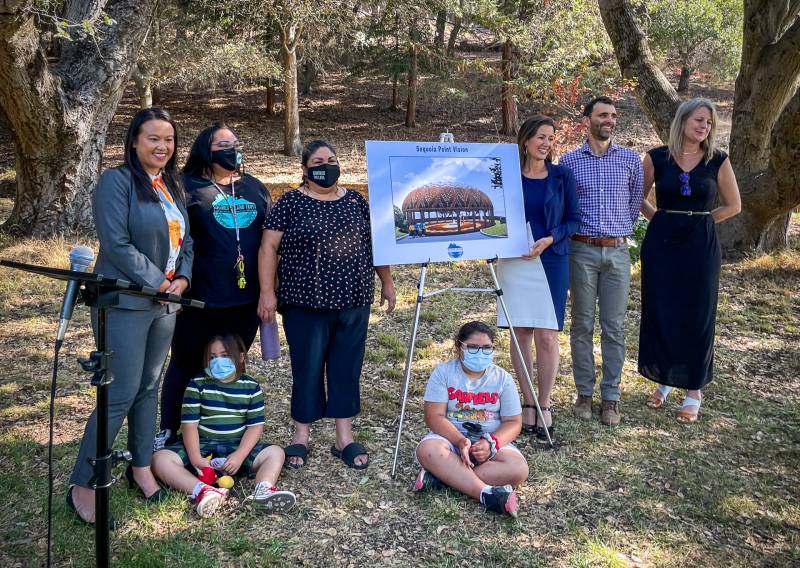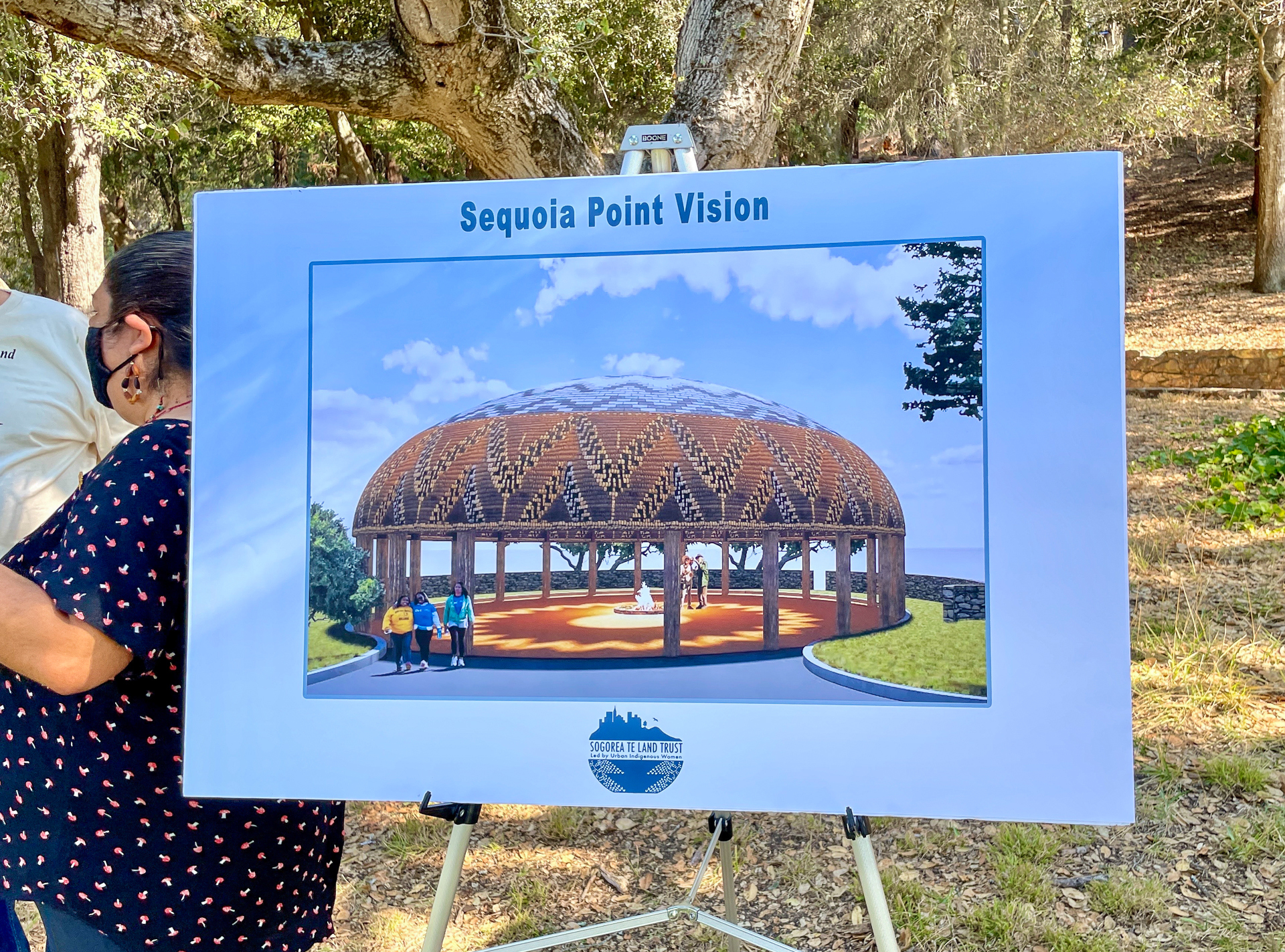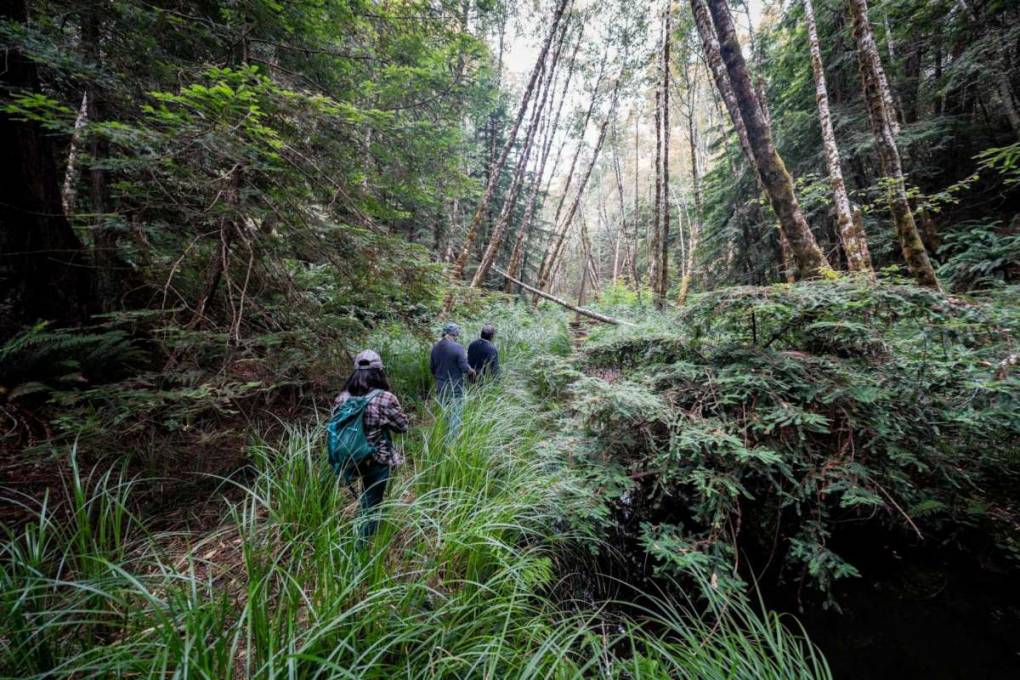On Thursday, the City of Oakland announced plans to return about 5 acres of Joaquin Miller Park to the East Bay Ohlone, which would make Oakland the first California city ever to turn over part of a municipal park as part of the Indigenous Land Back movement.
If approved, the site known as Sequoia Point will be co-stewarded by the Sogorea Te’ Land Trust, a women-run nonprofit, and the Confederated Villages of Lisjan, an East Bay Ohlone tribe, through the creation of a cultural conservation easement. Under that arrangement, the city will retain emergency access to the land but grant the trust the right to use it in perpetuity for natural resource restoration, cultural practices and public education.
For Corrina Gould, Lisjan Ohlone tribal chair and co-founder of the Sogorea Te’ Land Trust, the announcement is the culmination of nearly five years of planning and conversations with the city.
“We have a vision of a place in the hills that overlooks our territory, that holds us in a basket as we offer prayers, a way for us to tell our story as Lisjan people,” said Gould at a press conference announcing the plans. “A way for us to engage our relatives from all walks of life into stewarding this land in the way that it should be stewarded again.”




